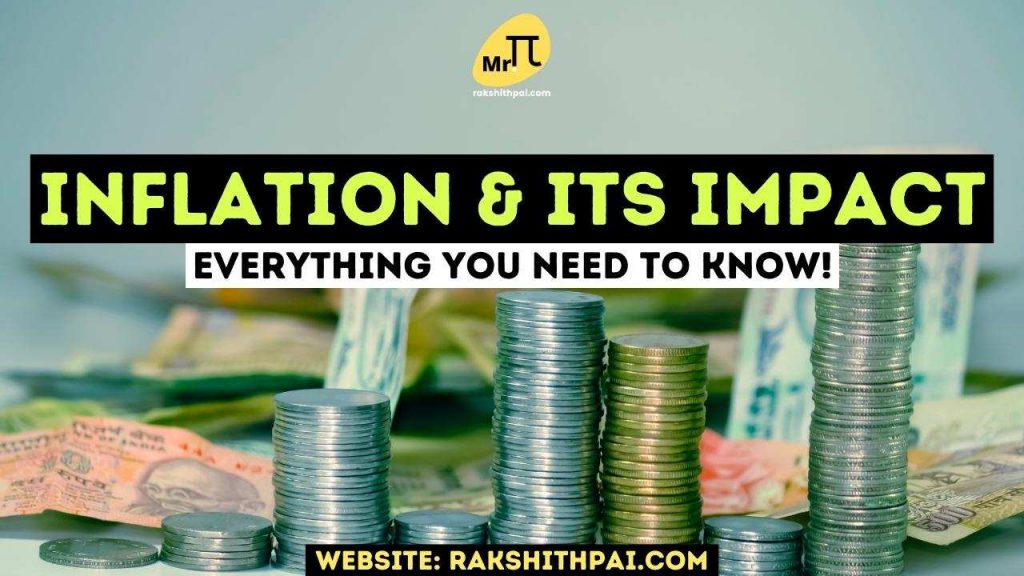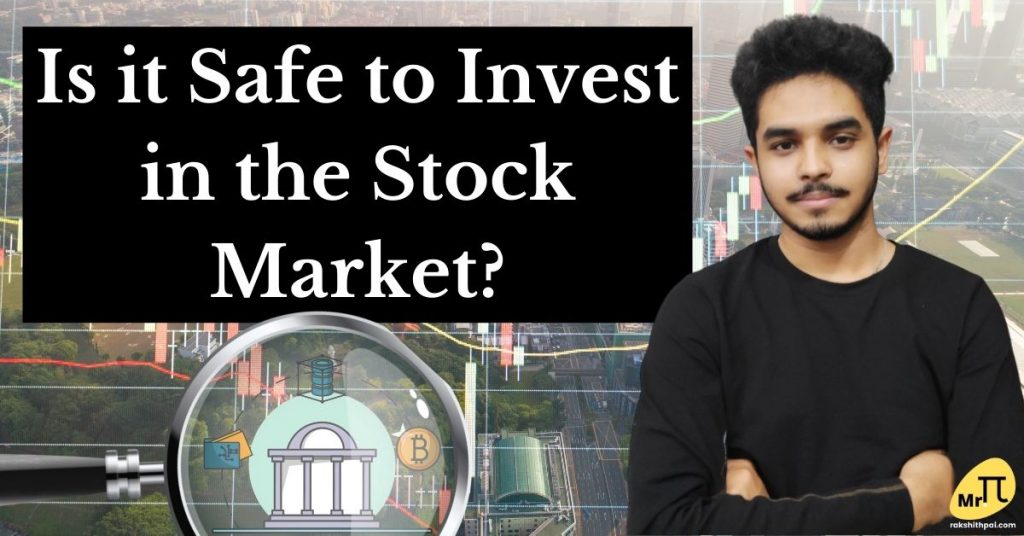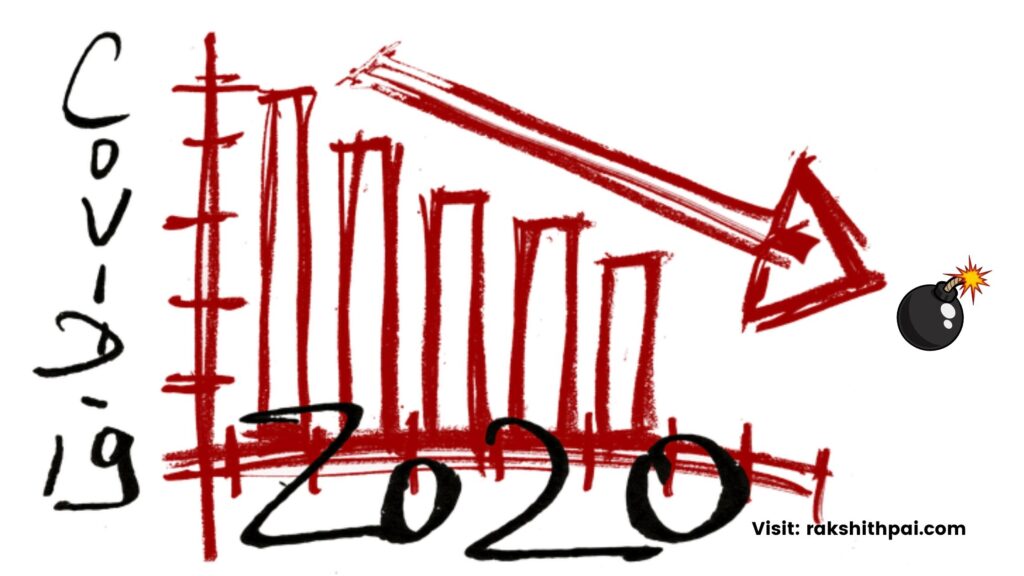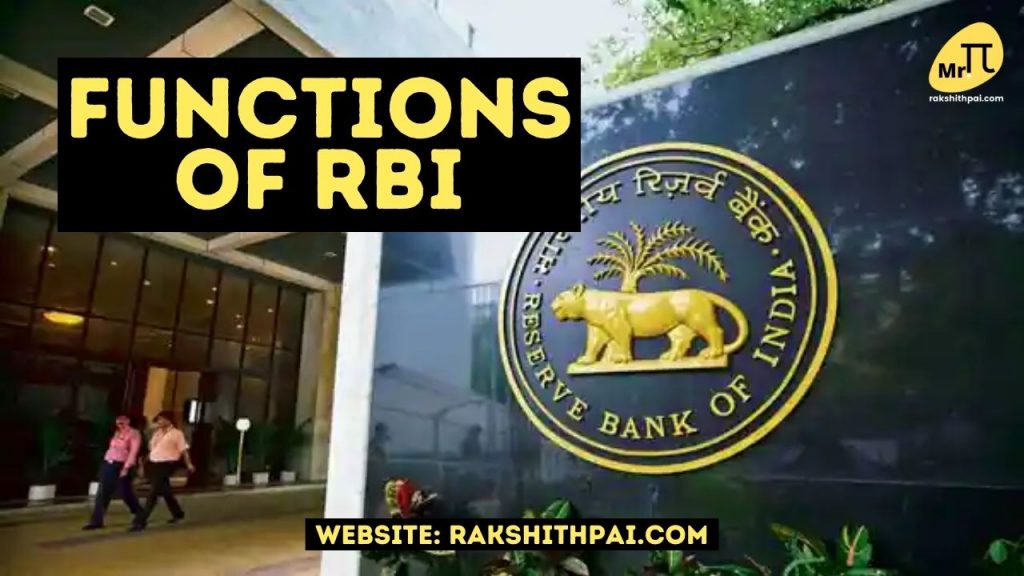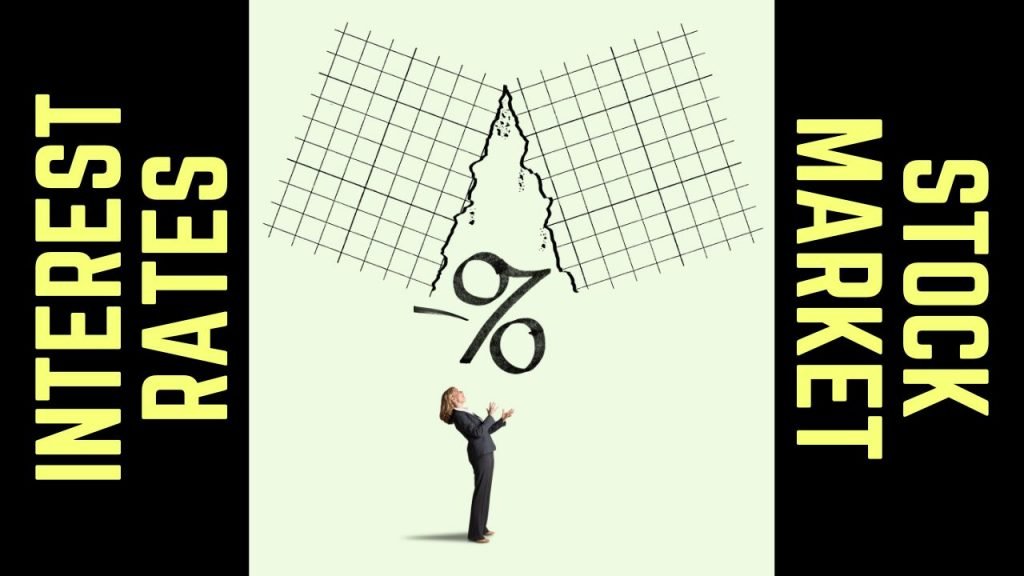Table of Contents
What is Inflation?
Inflation is nothing but “too much money following too few goods”. It is an act of inflating the money supply. It is to print more money into circulation. Thus, when few goods & services are produced, the money you hold becomes less in value.
All around the world, inflation is taking hold. Inflation in industrialized nations, including the United States and the United Kingdom, has hit 40-year highs despite growing commodity prices. What’s going on here, exactly?
Despite the fact that the pandemic looks to be over, the world is going to be afflicted. Rates have fallen since the outbreak of the epidemic, indicating plenty of demand and consumption.
Costs have increased as a result of a growth in consumer expenditure and an increase in the purchasing power of consumers. There are two sides to every coin. Because of problems in the supply chain, the gap between supply and demand is getting bigger, not smaller.
Inflation is surging all across the world in this setting. (Reuters) In June, inflation in Turkey hit 78.6%! Consumer price inflation in India was 7.04 percent in May, by way of reference.
What is Consumer Price Index?
Inflation refers to an increase in the overall cost of goods and services. Using a metric known as the Consumer Price Index (CPI), the official rate of inflation is calculated (CPI). For a certain period of time, the CPI measures how much it costs to live comfortably. It does a decent job of doing this, just like other economic metrics.
Amongst many ways of calculating inflation, The CPI is the most popular measure of inflation. CPI stands for Consumer Price Index, which measures the monthly change in the price of a basket of consumer goods.
These goods are regularly consumed by the vast majority of the population and hence any change in price is considered important. The difference noted for a hike or drop in price from one month to another is called inflation or deflation.
What is Shadow Inflation?
Shadow inflation, as the name suggests, hides amongst the goods & services produced. thus, it is much harder to capture in the CPI. Basically, anything outside the purview of CPI is known as ‘Shadow Inflation’.
To put it simply, “shadow inflation” refers to a sort of inflation that can’t be measured by the CPI. The price may have stayed the same, but the quality of the product or service may have gone down.
For example: If you buy a chocolate bar for Rs.10 weighing about 100 grams. In the case of CPI, either the weight of the bar may be reduced to 80 grams, or the price is increased to Rs.15 per bar. Such difference is easily noticed.
But, in the case of ‘shadow inflation’, the quality of the chocolate bar will be compromised. So, you are consuming the same chocolate bar worth Rs.10 weighing 100 grams. But, it won’t taste the same for the quality of the bar is reduced. Such difference is called shadow inflation.
Thus, Shadow inflation is an instance when you pay the same price for a good or service from one year to the next, but the quality has diminished.
Shadow inflation can be noticed amongst many consumer & household goods. The transition of the material from being a quality product to one that’s not soo quality product is mild and hence cannot be noticed immediately.
Check any product that is from the pre covid period and the ones produced now. You may find the difference.
10 Common Effects of Inflation on Consumers:
Poor & Middle-Class
Inflation affects the poor and the middle-class population disproportionately. Poor & Middle-class people have a very little cushion of savings and with the rise in the cost of living due to inflation, the entire segment of the population will be left with reduced savings and an impact on consumption.
Purchasing Power
It is said that Inflation is like a Cancer to one’s Wealth. Because inflation eats away from the inside! With the rise in inflation, the first thing that is noticed is an impact on purchasing power. Anything that used to cost less is not costing more or the goods & services quality has been diminished. Consumers lose purchasing power as and when the cost of goods rises.
Unemployment
Usually, inflation can lead to economic growth and job creation at times. But, a prolonged inflationary economy could lead to stagflation. Such a scenario calls for excess job cuts. Thus, mass unemployment can be noticed.
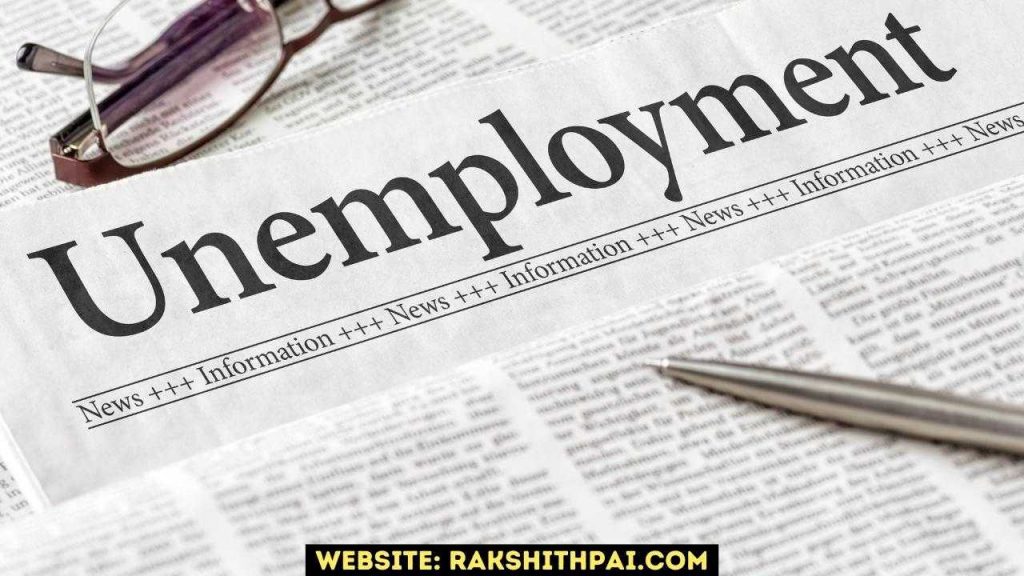
Recession
A drop in GDP over the course of two consecutive quarters indicates a short-term slowdown in commerce and manufacturing thus leading to recession. In order to tame inflation, central banks will tighten their monetary & fiscal policies. This will reduce money circulation and leads to reduced activity in the economy.
Stock Market
The Stock Market is like a shadow of the Economy. As and when the economy moves, the stock market moves accordingly. And, with inflation running wild, and with everything costing more than it used to, it’ll impact the company’s Gross & Net profit. And, finally, impacting the stock valuations.
Stock Market Basics 🎯
Real-Estate
Landlords have used the real estate for a long time as a way to protect themselves from inflation by raising rents even as the real cost of fixed-rate mortgages goes down. So, when inflation affects, it affects everyone and mainly those that are renting.
Debt
Bonds are debt instrument that offers interest income to investors. But, when inflation is high and bond yields are not sufficient enough to wave off the inflationary pressure. Investors are not incentives to invest in bonds and thus, the value of and gets impacted.
Interest Rates
In order to get inflation under control. Interest rates are the first tool used by the country’s central Banks. So, when at times of high inflation, the central bank will hike the interest rates and vice versa. Anyone facing a burden with the increased cost of living due to high inflation will face the hardship of increased interest burden on Home loans, Car loans, etc due to raised interest charges.
How Do Interest Rates Affect the Stock Market?
Economy
The economy is nothing but the asset management of people living inside a particular region. And, Increased inflationary pressure impacts the economy drastically. Some economists believe that economic growth can be aided by modest levels of inflation. While high inflation is generally considered a negative, a deflationary economy is one where prices tend to decrease.
Deflation
When the price of products and services as a whole drop, we say there is deflation. Deflation occurs when the rate of inflation falls below zero percent. takes time to lose value, but a quick deflation can reverse that trend.
Conclusion:
As a result of the Russia-Ukraine conflict, uncertainty is at an all-time high. The two countries supply a number of critical items. Supply disruptions in some nations have pushed up prices significantly. There is also an eight-year high in crude oil prices.
Global interest rates have been raised in an effort to stem the rising tide of inflation. The balancing task will undoubtedly be difficult. A slowdown in the economy is inevitable if the goal of lowering inflation is to be achieved at any cost.
The stock market has fallen because of inflation. However, there is a general belief that commodity prices have already peaked.
The current state of global uncertainties is far from over, so this may not be a cause for rejoicing. Increasing interest rates may lead to a recession.
FAQs:
Watch YouTube Video For More Information:
Disclaimer: All the information on this website is published in good faith and for general information purposes only.

